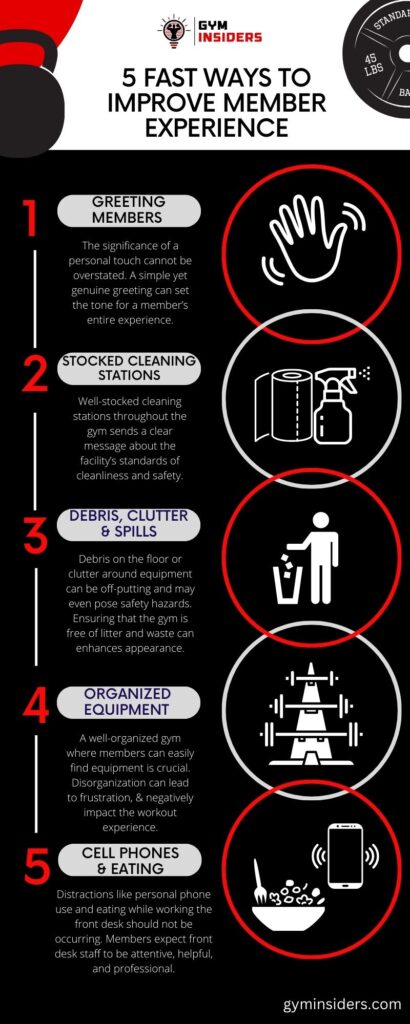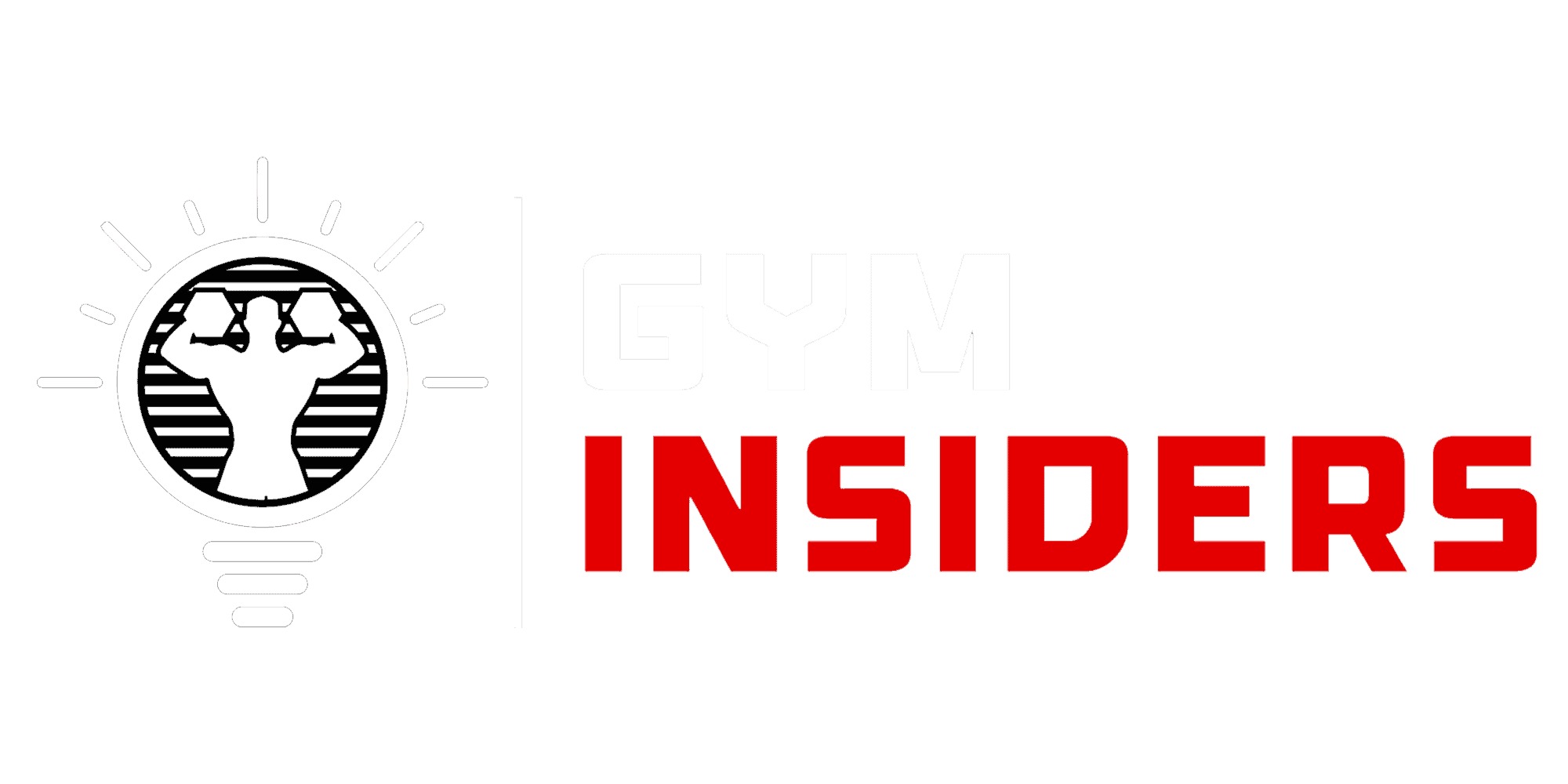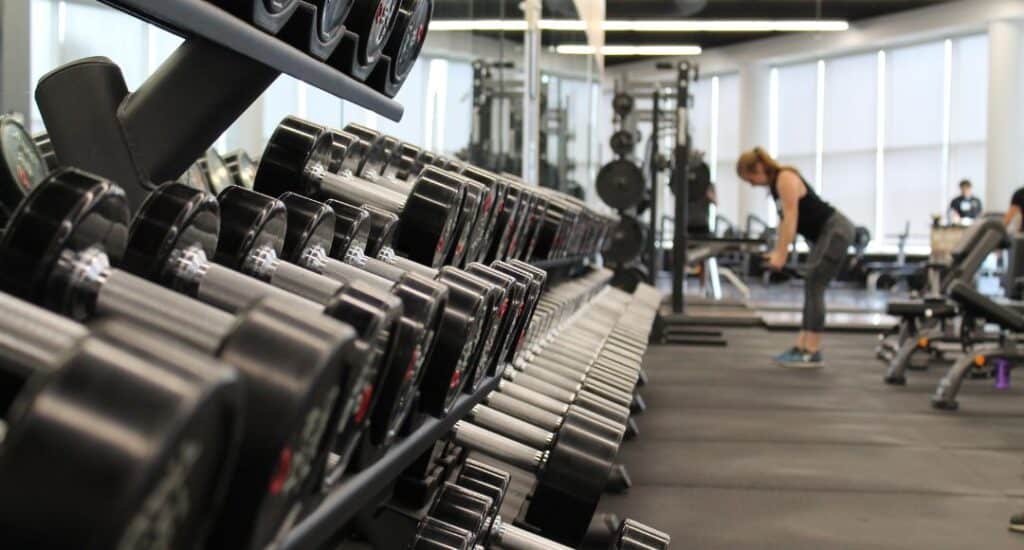As a seasoned fitness industry professional with a deep understanding of gym management, I’ve seen firsthand the impact that member feedback, both positive and negative, can have on a gym’s success. Based on my 18 years of experience, I’ve compiled these five key strategies to help you minimize negative feedback and enhance your members’ satisfaction.
Table of Contents
Greeting Members Upon Arrival
The Power of a Warm Welcome
In the bustling environment of a gym, the significance of a personal touch cannot be overstated. A simple yet genuine greeting can set the tone for a member’s entire experience. This is not just about common courtesy; it’s about creating a welcoming atmosphere that resonates with members from the moment they step in.
Real-World Impact and Member Retention
Numerous studies in service industries have shown that the first and last minutes of a customer’s experience are the most memorable. By ensuring a positive start with a welcoming greeting, gyms can significantly improve overall member retention and satisfaction. A member who feels welcomed is more likely to develop a sense of belonging and loyalty to the gym.
Tips for Ensuring Consistent Greetings
- Staff Training: Regularly train and remind staff about the importance of greeting members.
- Create a Welcoming Culture: Encourage all staff, not just front desk personnel, to acknowledge members.
- Leverage Technology: Use automated systems to alert staff when a member checks in.
- Feedback Mechanisms: Regularly gather member feedback to assess the effectiveness of your greeting protocol.
Availability of Cleaning Supplies
Impact of Cleaning Supplies on Member Experience
The presence of well-stocked cleaning stations throughout the gym sends a clear message about the facility’s standards of cleanliness and safety. Members are more likely to feel comfortable and reassured in a space that visibly prioritizes their health. Conversely, the absence of such amenities, especially in high-touch areas like workout equipment, can be a significant deterrent.
Strategies for Maintaining Stock Levels
- Regular Inventory Checks: Implement a system for frequent monitoring and replenishing of cleaning supplies.
- Visible Placement: Place supplies in easily accessible and highly visible locations.
- Member Education: Encourage members to use the supplies provided to maintain a clean environment.
- Staff Engagement: Train staff to promptly address any shortages and maintain cleanliness standards.
Maintaining a Clean and Tidy Environment
Debris, Clutter, and Spills on the Floor
Debris on the floor or clutter around equipment can be off-putting and may even pose safety hazards. Ensuring that the gym is free of litter and waste not only enhances its appearance but also demonstrates a commitment to providing a safe and welcoming environment. It also goes without saying that trash cans should not be overflowing.
Strategies for Tackling Debris and Clutter
- Regular Inspections: Conduct frequent walkthroughs to identify and address areas that need cleaning or decluttering.
- Staff Involvement: Encourage all staff members to take an active role in maintaining cleanliness, not just the cleaning crew.
- Member Engagement: Foster a culture where members feel responsible for maintaining the cleanliness of their environment.
- Visible Waste Disposal Options: Ensure that trash bins are easily accessible, well-marked, and regularly emptied.
Handling Overflowing Trash Cans
An overflowing trash can is a clear sign of negligence and can significantly impact member experience. To avoid this:
- Frequent Emptying: Schedule more frequent trash removal, especially during peak hours.
- Larger or More Bins: Consider increasing the size or number of bins in high-traffic areas.
- Clear Signage: Use signs to remind members to dispose of their waste properly.
Proper Equipment Management
The Effect of Misplaced Equipment on Member Experience
Members expect a well-organized gym where they can easily find and use equipment. Disorganization can lead to frustration, negatively impacting their workout experience. It also reflects poorly on the gym’s overall management and can be a significant factor in negative feedback.
Strategies for Effective Equipment Management
- Regular Floor Walks: Encourage staff to frequently patrol the gym floor, reorganizing misplaced equipment and ensuring everything is in its proper place.
- Clear Signage and Designated Areas: Use signs to indicate where equipment should be returned. Clearly marked areas for different types of equipment can guide members to put things back correctly.
- Member Education: Regularly communicate with members about the importance of returning equipment to its designated place for safety and courtesy.
- Incentivize Proper Etiquette: Consider implementing a reward system for members who consistently follow gym etiquette.
Addressing the Issue of Weights Left on Machines
Weights left on machines are not just an inconvenience; they can be intimidating for other members and create an unwelcoming environment. To tackle this:
- Staff Vigilance: Ensure staff are attentive in reminding members to remove weights after use.
- Educational Signage: Place reminders near weight machines about the importance of unloading weights.
- Member Involvement: Foster a culture where members feel responsible for maintaining a tidy and safe workout area.
Building a Culture of Respect and Responsibility
The key to effective equipment management is cultivating a culture where members respect the shared space and take responsibility for their actions. This creates a more enjoyable and safe environment for everyone.
Professional Conduct at the Front Desk
Upholding High Standards of Professionalism
Key areas of focus include minimizing distractions like personal phone use and eating, which can detract from the professionalism of the environment. Members expect front desk staff to be attentive, helpful, and professional. When staff are preoccupied with their phones or eating, it sends a message of disinterest and lack of professionalism. This can lead to dissatisfaction and could be a significant factor in negative feedback.
Strategies for Ensuring Professional Conduct
- Clear Staff Guidelines: Establish and enforce rules regarding phone use and eating at the front desk.
- Regular Training: Conduct training sessions emphasizing the importance of professional behavior and member engagement.
- Lead by Example: Management should model the expected behavior, demonstrating a commitment to maintaining high standards.
- Feedback Mechanisms: Implement systems to gather member feedback specifically about their experiences with front desk interactions.
Conclusion
In conclusion, running a gym is about more than just the equipment and the workouts; it’s about the member experience. By focusing on these five areas – greetings, cleanliness, organization, professionalism, and leveraging feedback – you’re not just running a gym; you’re creating a community.
Remember, the little things often make the biggest difference.










No Comments
Sorry, the comment form is closed at this time.